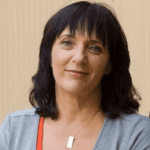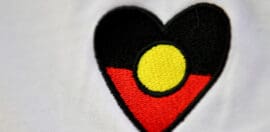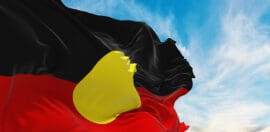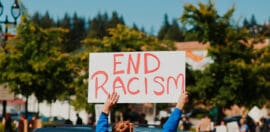We need to work together this 26 January

19 January 2022 at 4:03 pm
Dr Cathy Kezelman AM on why acknowledgement of the harm perpetuated by historical injustices of 26 January is no longer enough.
As we approach 26 January, we are a nation divided.
For some Australians, “Australia Day” is simply a day off work. Some time to be spent with family and friends. A day of celebrating our nation – all the while ignoring what this day truly means for the Traditional Owners of our land.
For many Aboriginal and Torres Strait Islander peoples, 26 January is a day of intense mourning and distress. It is a painful reminder of colonisation, genocide and mass incarceration, and far from a reason to celebrate.
In our history books, 26 January marks the day that Captain Arthur Phillip and his fleet landed at Sydney Cove, and claimed the land as a British colony in 1788. It is the day on which Australia – as we know it – was “founded” and, despite its racist roots and brutal beginnings, it is still a date that Australia memorialises through a public holiday and parade.
For First Nations people, 26 January marks a day which heralded the beginning of an immensely dark chapter in history. It initiated the brutal process of colonisation and its ongoing disruption of cultural wellbeing. It introduced the unfathomable trauma of displacement, massacres, forced removal, marginalisation and disruption of culture. The loss of connection to place, land and kin has continued across countless ensuing generations.
Right now, in Australia, we are living through a period of history which is unprecedented in the number of Royal Commissions, public enquiries, and protests in support of the marginalised and disenfranchised. This 26 January, people will once again take to the street, seeking to influence our leaders to change the date.
The trauma experienced by our First Nations people is multilayered and cumulative, with profound experiences of grief and loss being passed down from generation to generation. The loss is about loss of identity, loss of meaning, loss of connection, loss of purpose and, in so many cases, loss of life.
When people are subjected to trauma, they cope as best as they can. They use whatever is at their disposal to reduce their angst and distress. Trauma occurs in response to threat and when it is perpetrated by other people, it can be especially damaging.
The interpersonal trauma experienced by generations of First Nations people has been evidenced by ongoing cycles of hopelessness and helplessness. Colonisation shattered many of the connections which were fundamental to the wellbeing of our First Nations people, and this trauma lingers.
For the last 200 years, many of our First Nations communities have experienced mental ill-health, substance abuse, fractured relationships, suicide and cycles of violence as an outcome of the ongoing impacts of colonisation and its deep destruction.
When we celebrate 26 January without a real acknowledgment of the losses the day commemorates, we send a harmful message that this trauma doesn’t matter.
It is time to go beyond an acknowledgement of the harm perpetuated by historical injustices. It is time to act. It is time, as a nation, to understand that the trauma of our history lives on. It is only through truly recognising this that we can move closer to a world that is genuinely understanding and supports people to heal.
So, how do we as a nation reset? How do we meaningfully listen to our First Nations brothers and sisters? How do we come to truly comprehend the ongoing inequities, compounded disadvantage, and discrimination which still play out in our communities? How do we ensure that we aren’t minimising a part of history that comes with deep cultural wounds?
As Australians, we all have a part to play.
We can start by honouring the strengths and resilience of the Aboriginal and Torres Strait Islander people speaking out and telling their truths. We can contribute to combatting stigma and discrimination and show that we are there for one another as human beings – by showing compassion, removing judgement and contributing to a truly fair and equitable Australia.
It is important for us all to acknowledge the place of cultural healing which rebuilds connection to family, kin and place, and fosters a sense of belonging. When a sense of hopelessness and helplessness predominates, it is important for people to identify and reconnect with their strengths, and rediscover the promise of hope and possibility for the future.
It is time for all Australians to walk alongside our First Nations people on a path to individual, community and national healing. It is time to use our individual and collective voices to foster r trauma-informed attitudes across all sectors and industries.
At a time when racism and discrimination abound globally, Blue Knot calls for genuine understanding, tolerance and meaningful reconciliation within Australia.
As Australians, we all need to work together. We need to work together, with our First Nations people, as they heal and we journey collaboratively towards true reconciliation. We need to use each and every opportunity we have to amplify the voices of First Nations communities to truly and meaningfully identify their needs.
This 26 January, take time to consider and acknowledge the pain that First Nations communities are experiencing, and ask yourself how you can contribute to a trauma-informed, supportive and understanding Australia.







